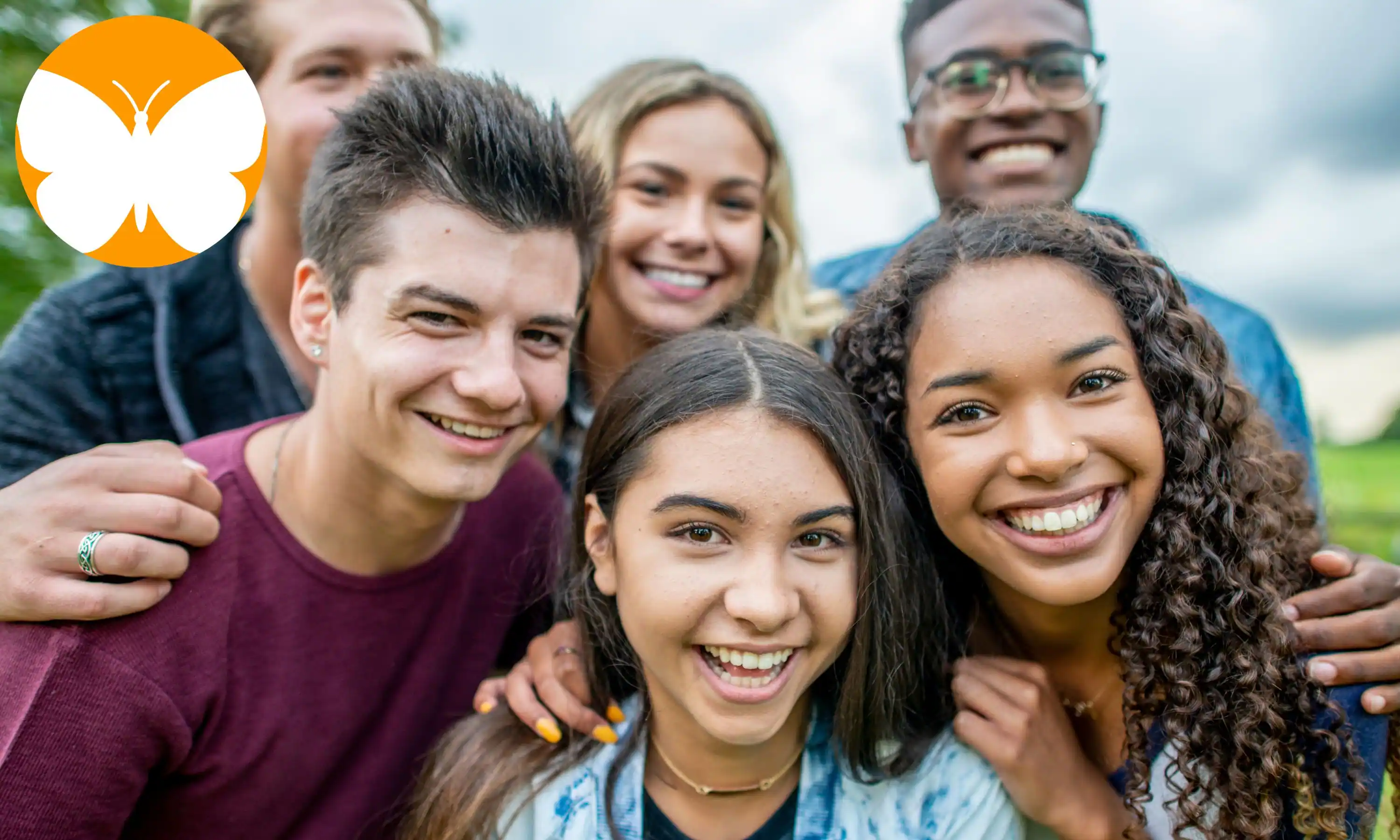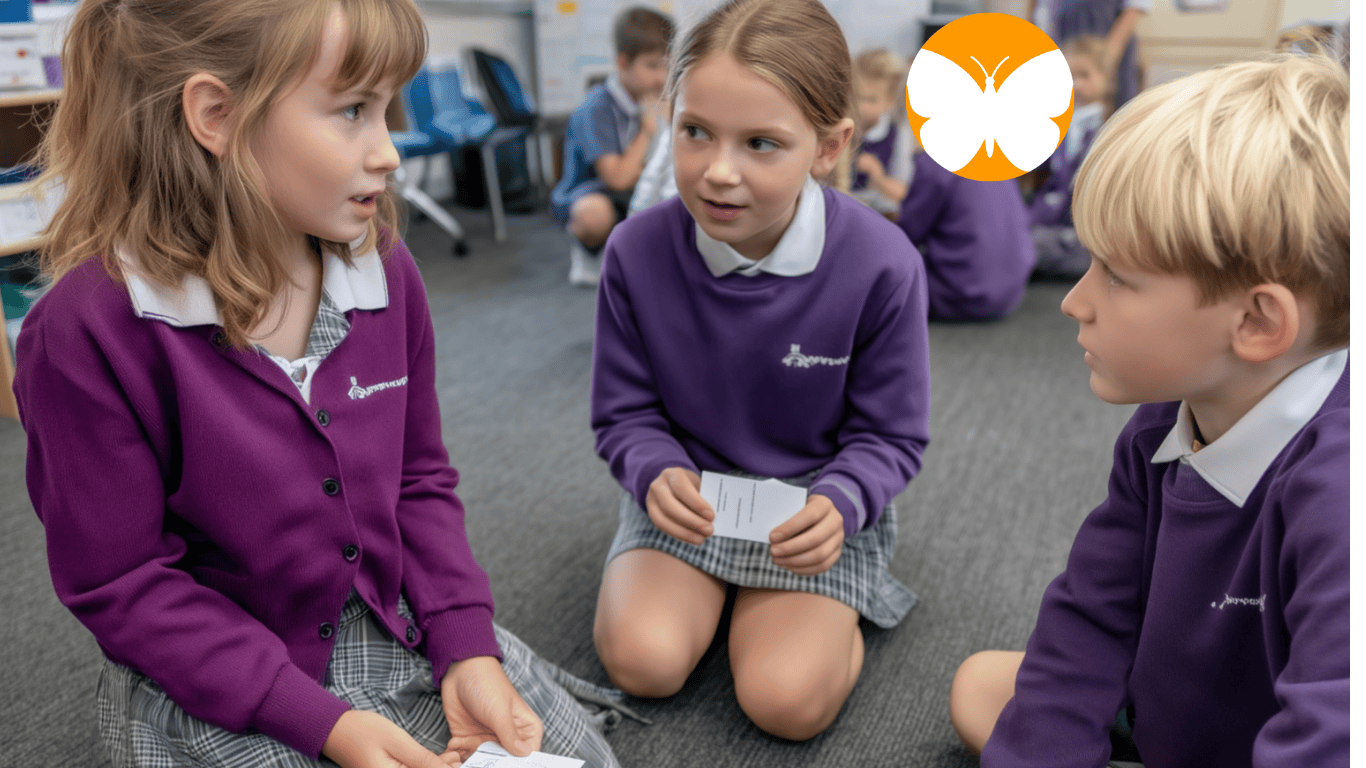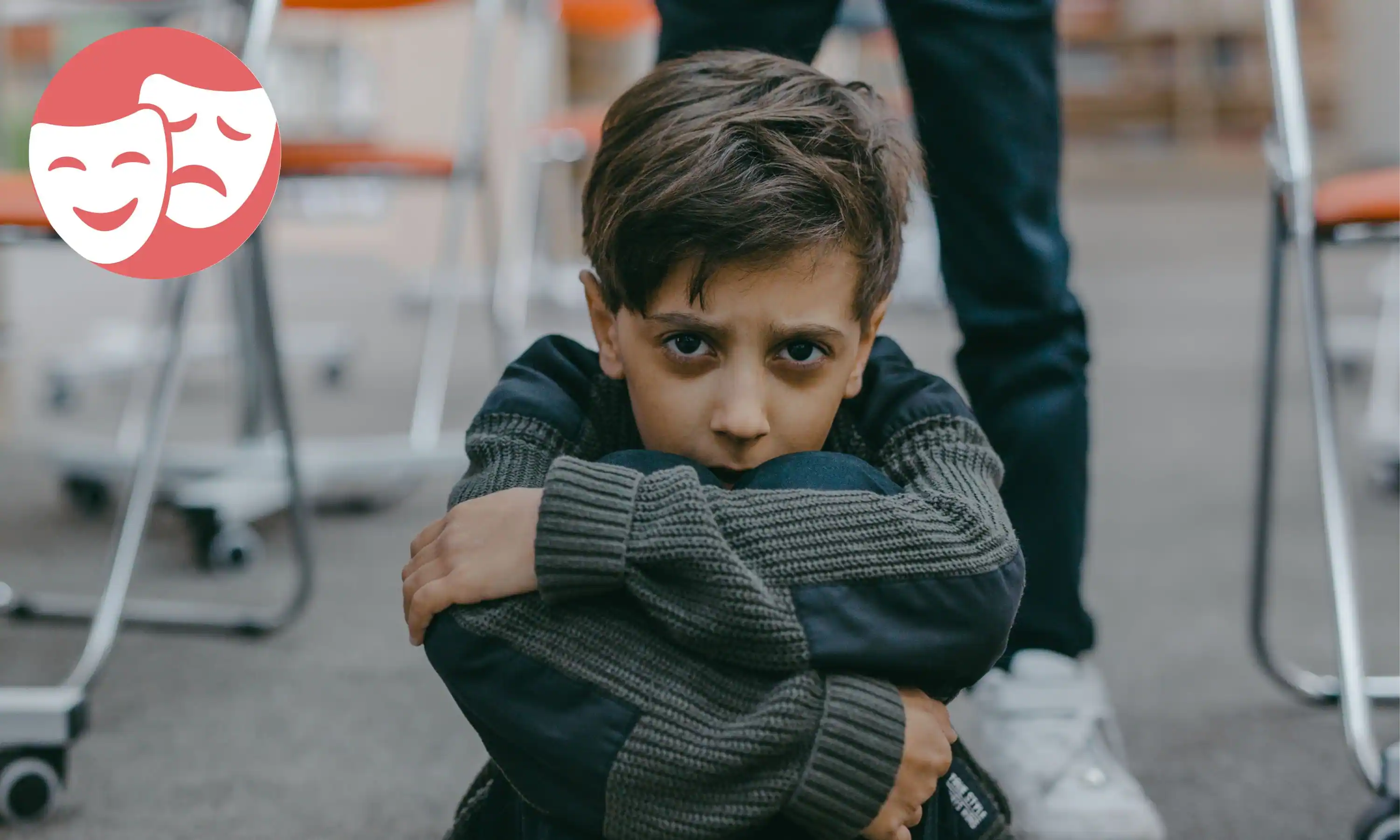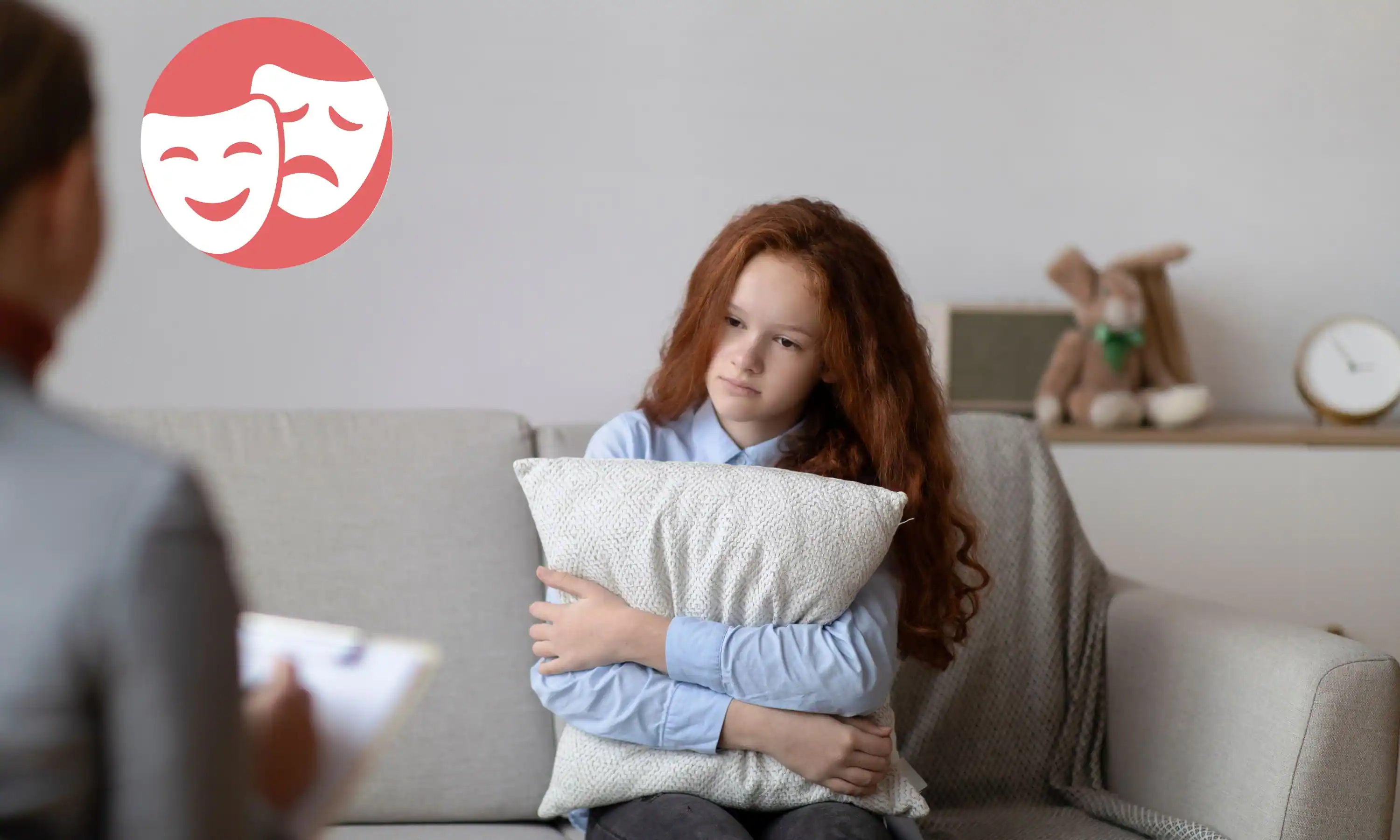Reassure and Empower Your
Child Through Change
Help them feel valued, included, and secure as
the family grows.
Welcoming a New Sibling
Designed with educators, backed by psychology, and
easy to integrate into your school’s
routine.

Plan Objectives
 Strengthening Sibling Relationships
Strengthening Sibling Relationships
Teach children to develop trust, patience, and connection with their new sibling.
 Understanding Family Dynamics
Understanding Family Dynamics
Help children recognize and embrace their evolving role in the family.
 Managing Emotions
Managing Emotions
Provide tools for children to express their feelings constructively rather than through frustration or jealousy.
 Encouraging Empathy
Encouraging Empathy
Support children in understanding the needs and emotions of their new sibling.
Why This Plan?
This plan addresses the following challenges by developing targeted skills

My child struggles to understand the changes in family dynamics

My child feels overlooked or less valued by parents due to the new baby

My child acts impulsively toward the baby and is afraid they have lost their “place”

My child struggles to understand how they feel about the new family addition
My child struggles to understand the changes in family dynamics
How This Plan Helps
Helps children embrace new family roles and responsibilities.
Skill: Relationship Management
Course: Relationship Building Basics
My child feels overlooked or less valued by parents due to the new baby
How This Plan Helps
Teaches children to manage feelings of jealousy and insecurity.
Skill: Self-Management
Course: Emotional You: Managing Your Emotions
My child acts impulsively toward the baby and is afraid they have lost their “place”
How This Plan Helps
Provides strategies to reduce stress and build confidence in their role.
Skill: Fear Management
Course: FearLESS: Building Brave Young Hearts
My child struggles to understand how they feel about the new family addition
How This Plan Helps
Encourages children to explore and understand their emotions toward their sibling.
Skill: Empathy
Course: Cultivating Empathy
01 Adjusting to a New Sibling’s Presence
Teaches children how to bond with their sibling and participate in their care.
02 Managing Feelings of Jealousy
Helps children express emotions in a healthy way rather than acting out.
03 Feeling Secure in the Family
Encourages children to build confidence and recognize their importance in the family.
04 Understanding the Baby’s Needs
Helps children develop empathy and patience when interacting with their new sibling.
Real-Life Applications
How this plan's skills apply to real-world scenarios for everyday success
Courses Included


Relationship Building Basics
Social
Relationship Management
Course Details:
Modules: 4 |
Lessons: 33
Trust: Develop the ability to build and maintain trust, strengthening supportive connections.
Benefits: Understand how healthy relationships enhance well-being and personal growth.


Cultivating Empathy
Social
Empathy
Course Details:
Modules: 4 |
Lessons: 32
Empathy Development: Develop empathy by understanding and responding to others' emotions and views.
Communication Skills: Enhance skills with active and empathetic listening techniques.


FearLESS: Building Brave Young Hearts
Emotional
Fear Management
Course Details:
Modules: 4 |
Lessons: 31
Understanding Fear: Recognize fear’s role and learn when it’s helpful or harmful.
Coping Strategies: Explore methods to manage fears like social anxiety and failure.


Emotional You: Managing Your Emotions
Emotional
Self-Management
Course Details:
Modules: 4 |
Lessons: 32
Understand Emotions: Recognize how feelings influence thoughts, behaviors, and relationships.
Cope with Stress: Use breathing and distraction techniques to manage challenging emotions.
Meet the Course Creators

Dr. Kymberli Barker
Relationship Building Basics
Dr. Kymberli Barker
Relationship Building Basics
Dr. Barker is the mother of two fantastic young men, and they are her priority in life. She holds degrees in biochemistry, math, forensics, and psychology. She is a consultant and a professor at multiple colleges, including the Citadel, and Johns Hopkins Center for Talented Youth. She spent fifteen years in public education, prior. Her personal focus is child advocacy and she developed the Guardian ad Litem/(GAL)/CASA program for the Eastern Band of Cherokee Indians. She is tribally and state sworn as a GAL. Her favorite thing is being a mom.

Ali Dareneau
Relationship Building Basics
Ali Dareneau
Relationship Building Basics
Ms. Dareneau is an English teacher with dual degrees in Psychology and English Education, she enjoys helping students reach their potential, especially when it comes to English Language Arts. With over 16 years of classroom experience and working with education-based companies, she brings creativity and enthusiasm to the classroom and beyond. She earned a Bachelor's degree in Psychology in 2007 and completed her Masters's degree in English Education in 2013 which have both shaped her into the passionate educator she is today. Her professional experience as an English teacher, curriculum designer, and writer demonstrates her passion for reading and writing and solidifies her belief all students can strengthen their reading and writing skills no matter what level they begin their journey.

Mandy Mahr
Cultivating Empathy
Mandy Mahr
Cultivating Empathy
Mandy Mahr is a Masters Level educator who served in public schools in the United States for 15 years before becoming an online tutor to schools with at-risk students, providing social emotional support as well as skill recovery in reading and writing. She is also a consultant for content creation to provide guidance to organizations wanting to engage and employ GenZ. With the technological advances the world has seen in just the last twenty years, it is her goal to train learners to be ready for jobs that don't exist yet. She is passionate about helping learners develop social emotional skills before reaching the workforce.

Lauren Hudak
FearLESS: Building Brave Young Hearts
Lauren Hudak
FearLESS: Building Brave Young Hearts
Lauren Hudak is an educator with over eight years of experience. After graduating from the University of Virginia with degrees in English Literature and Media Studies, she went on to get her Masters in Teaching from New York University. Lauren has worked with all ages of students from Pre-K through college, but she thrives when working with middle schoolers. She believes this is the perfect age to integrate mindfulness, technology, and social emotional learning into student learning objectives. She wants to help students conquer their fears and build a better world. When she’s not teaching, Lauren loves being outdoors, traveling and spending time with her family.

Dr. Corina Weir
Emotional You: Managing Your Emotions
Dr. Corina Weir
Emotional You: Managing Your Emotions
Dr Corina Weir with over 8 years of specialized experience in behavior change and pediatric psychology. As a former University lecturer, she has a passion for educating the next generation. Her role as a working mother of two young children provides her with firsthand knowledge of the challenges and importance of fostering skills in emotional regulation.
Sample Lesson Preview 
Relationship Building Basics
Benefits of Healthy Relationships
Benefits of Healthy Relationships
It is essential for our well-being to cultivate and maintain healthy relationships. Benefits of healthy relationships include:
- Emotional Support: Our friends, family, and acquaintances give us the supportive network we need. We can share joys, sorrows, and challenges together. Emotional support from loved ones helps us navigate life's ups and downs.
- Personal Growth: Relationships offer opportunities for personal growth and self-reflection. Interacting with others helps us develop empathy, understanding, and emotional intelligence.
- Health and Happiness: Healthy relationships contribute to overall well-being. We can have increased happiness, reduced stress levels, and improved mental and physical health.
Please think of your relationships. Please take a minute to journal the benefits you gain from people in your life.
Sample Lesson Preview 
Cultivating Empathy
Learning Sympathy
Learning to Show Sympathy
James is a kind kid, but sometimes he doesn't show sympathy, probably because he doesn't know what it means yet! In this section James will interact with his brother, Miles, his parents, and his friend Corrie to learn what it means to be sympathetic towards others.
Learning to show sympathy in your relationships can help build trust and strengthen your connection.
If you are like James and you aren’t sure what sympathy is, this scene will help you!
Sample Lesson Preview 
FearLESS: Building Brave Young Hearts
Fight, Flight, or Freeze
The Triple F’s of Fear
Fight, Flight, and Freeze are the three basic ways that our bodies respond to threats.
Your brain might decide that fighting the danger is best. For example, if you are faced with an unfriendly animal, you might yell or throw things at it to try to get it to go away. You might have learned to wave your arms and stomp your feet. You’re trying to prove that you are the bigger threat so the animal will leave you alone!
Sometimes, flight is the best option. Your brain wants to get you out of a dangerous situation quickly. This could mean physically running away from something scary, but it could also mean avoiding something that you find intimidating. For example, maybe it means not raising your hand in class because you’re scared you’ll get the answer wrong in front of others.
The last “F” stands for freeze. Sometimes, your brain can’t make a decision. Instead of fighting or running from the danger, you freeze up. You might have a hard time speaking or yelling, your mouth might go dry, or you might feel faint or lightheaded.
Sample Lesson Preview 
Emotional You: Manage Your Emotions
Recognizing Anger
Recognizing Anger
Recognizing anger is like learning to spot a storm before it hits.
When you’re angry, you might feel your face get hot, your fists clench, or your heart beat faster.
Your thoughts might be racing, thinking about what upset you or how unfair things seem.
Psychologists say that noticing these signs helps you manage your emotions better.
Paying attention to how your body feels and what you’re thinking when you’re angry can help you to handle anger in a healthy way.
Knowing when you are angry is the first step to then using tools to cope with the anger in helpful ways.
